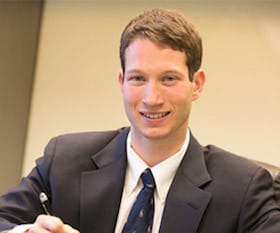
Chicago-based SBB Research Group, which manages more than $150 million, recently launched its second quantitative hedge fund to actively trade derivatives linked to U.S. equities, and the firm said it will soon expand to trade in the international equity options market.
SBB’s first fund is closed to new investors, but its second fund, Polysight, has no cap. The firm, launched in 2010, completed its SEC registration in March and the firm says it has capacity to manage up to $1 billion.
“The name Polysight is inspired by the concept of seeing more than usual,” said SBB Founder Sam Barnett, who is 24 years of age. “Our algorithms determine specific grades or forecasts for each stock, and the options market allows us to match our trades precisely with our predictions. Polysight benefits from years of rigorous testing and continuously refined methods for generating value.”
The fund primarily invests in derivatives on U.S. equities with the dual goals of consistent profitability and strong protection against losses.
Barnett takes an unorthodox approach to investment strategy, stacking his 30-person team not with traditional financial professionals, but with engineers and scientists from various disciplines. “We’ve got chemical engineers and bioscientists, different types of people that you don’t often see in hedge funds, working on these problems of trying to predict what investors are going to do, what consumers are going to do by using very different and unusual approaches,” Barnett said.

Sam Barnett, SBB Research Group
Barnett said SBB’s quantitative funds take hundreds of thousands of positions at a time, holding them for up to 90 days. They also employ mechanisms designed to prevent losses for investors in the event of broad market declines of up to 30-percent, while offering partial protection against steeper crashes.
The application of machine intelligence to trading is beginning to make the leap from theory to application. Christopher Kirk, CEO of Forecast Ltd., a UK-based quantitative research firm, recently authored a paper about using predictive, continuous-time neural networks in securities market trading.
“This architecture can be directly applied to model pre-processed data feeds of different asset classes, but the development of new trading strategies to make best use of continuous predictive output might be necessary,” Kirk concluded.
Barnett has been managing his own money for years, and is a keen student of wealth management and investment theory. He developed his algorithmic trading expertise studying applied and computational mathematics at Caltech.
“I’ve been interested in patterns and data my whole life,” he said. “While I was an undergrad at Caltech, I developed an algorithm to predict the stock market and was managing $2 million at the time. Now, we’re collectively managing $150 million.”
Barnett is currently a PhD student at Northwestern studying the neuroscience of consumer behavior. “By analyzing and modeling the brain, we can predict which products people are more likely to purchase,” he said.
One of his research projects is focused on predicting which advertisements people will remember, and his technique has performed better than focus groups and other traditional marketing research methods.
“Basically, the theoretical approach is that consumers do not always behave rationally,” he said. “Different people are tracing these irrational decisions back to different identifiable sources. In my particular case, I’m trying to trace it back to the brain. We’re able to make better decisions and develop systems to trade without this irrational, emotional component that many investors use.”
Featured image via freshidea/Dollar Photo Club





